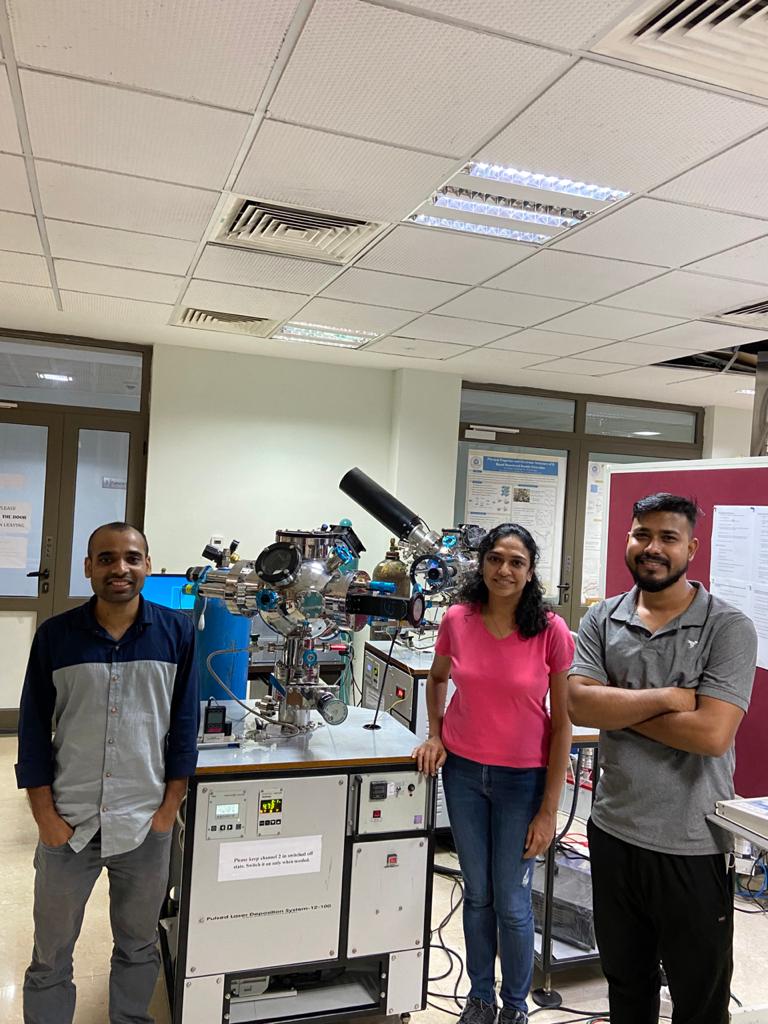Dr. Megha Vagadia: On a roller coaster ride of innovating and aiding technological advancements
WIISER : Women in Science at IISER
Debdatta Banerjee and Arunita Banerjee

Dr. Megha Vagadia is an experimental condensed matter physicist and material scientist at IISER Bhopal. In this electronic interview, she talks about her exciting field of research, her views on balancing gender ratios in academia and interesting alternate career options outside academia.
Tweet
1. Why did you choose to pursue a career in the field of physical sciences? What made you choose the highly technical field of experimental condensed matter physics?
Since my school days, I was naturally inquisitive about interstellar phenomena, and this ultimately led me to be a physics graduate with a specialization in space sciences. As far as choosing the technical field of experimental condensed matter physics concerns, it was purely accidental. Despite taking the unplanned route, my career in this field has been a wonderful journey. I have learned many exciting things about solids and found that the world of atoms shares equal breadth as the universe in the interstellar scale. It is immensely rich with exotic and complex physical phenomena such as superconductivity, magnetism etc. Particularly exploring this world with experiments has been an incredibly joyful experience as it has helped my multidirectional growth as a researcher and as a person as well. No doubt, I found the research in the experimental field to be a roller coaster ride as it is adventurous, challenging and satisfactory. Sometimes the experimental results are unpredictable and surprise us with an unexpected outcome. This, in a way, is a thrilling and interesting part of the experimental research for me, keeping me motivated and curious to understand physics at the atomic scale.
2. Please tell us about your research in layman’s terms. How is it applicable in our daily lives, and why should the general public care about it?
In the last two decades, we have witnessed the world, transiting into the digital era. We have seen that the size of our memory storage devices, such as pen drives, hard disks, and other electronic gadgets, is decreasing, and the processing of computers, laptops and mobile phones is becoming faster day by day. Most importantly, this has happened with the increased affordability. All this has been possible due to various factors; one of them is that- material scientists are constantly looking for new materials with improved performance. My research in experimental condensed matter focuses on the development and characterization of such functional materials that, in a way, are great for multitasking, i.e. useful for various applications in memory devices. For example, one class of materials known as ‘Multiferroics’ offers four times more storage in the same size of the devices.
3. According to you, what would you list as 'hurdles' in the path of women scientists in our country?
Being an experimentalist, I would say that sometimes laboratory timings are a bit demanding and unconventional than regular 9 to 5 jobs. This mostly doesn’t affect in the reputed research institutes like IITs and IISERs, but in the small town universities where safety protocols and security standards are regularly compromised can present hurdles for women. This discourages families from allowing women to pursue a career in research.
Though time is changing and women are more and more appreciated and acknowledged in the research field, still gender discrimination and sexual/verbal harassment have not been vanished from this profession. Also, the number of females dropping research as their career choice after completing PhD or postdoctoral studies suggests the current system needs more modification to ensure equal opportunity, irrespective of gender.
4. If not a career in scientific research, what professional field would you have chosen?
If not scientific research, then there would be two options I would like to venture into. First being culinary science, which in a non-professional limit I have always enjoyed and, deep in my heart, always tempted to pursue a profession in the world of food and culture. Alternatively, I would choose to be a science writer/science journalist as this allows me to be updated with the scientific world and communicate it to society. In the times where on one side digital technology drives our lives and on the other side global climate challenges or pandemic like COVID in front of us, we are in urgent need of understanding scientific advancement more than ever. The role of science communication is crucial here, particularly in developing countries like India, to inform, engage, inspire and connect the general public with the science community. As a scientist I understand the challenges to accurately explain scientific concepts in the broader social context to a wide variety of the audience whether a political identity involved in the concerned policy making or a small business vendor. I believe that for more effective dissemination of science, the active participation of scientists and academicians in the science communication and outreach activities is highly requisite.
This electronic interview was conducted by Debdatta Banerjee and coordinated by Arunita Banerjee for Cogito137.
Debdatta Banerjee is a student of Second Year Integrated PhD programme at IISER Kolkata. She aspires to pursue a career in Computational Mineral Physics. She also likes to engage herself in many extracurricular activities.
signup with your email to get the latest articles instantly